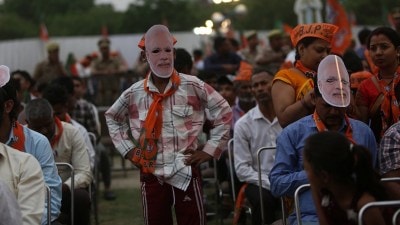- India
- International
Karnataka: 16,000 applications rejected in Sagar, Shivamogga under Forest Rights Act
Those whose applications have been rejected can still appeal before sub-divisional level committees within 90 days, said officials.
 While the major aim of the FRA is to undo the historical injustice towards the forest-dwelling communities, the forest officials say that since the framing of the act, several false claims have been made under it to claim ownership of the forest land (File photo/Representational)
While the major aim of the FRA is to undo the historical injustice towards the forest-dwelling communities, the forest officials say that since the framing of the act, several false claims have been made under it to claim ownership of the forest land (File photo/Representational)Till July, more than 16,000 applications filed under the Forest Rights Act (FRA) were rejected across the Shivamogga and Sagar divisions, according to the tribal welfare department. In the Sagar division of the forest department, of the 16,424 applications, 4,993 were rejected and only 505 approved, according to the department. As many as 10,926 applications are still pending, it said.
In the Shivamogga division, of the 19,191 applications under the FRA, 11,982 were rejected and 236 approved while 6,973 are still pending, the department said. More than 16,000 applications were rejected across the two districts.
Those whose applications have been rejected can still appeal before sub-divisional level committees (SDLC) within 90 days, said officials. The SDLC is headed by a sub-divisional officer, forest officer in charge of the sub-division, three members of block/tehsil level panchayat nominated by the district panchayat and an officer of the tribal welfare/tribal affairs department in charge of the sub-division. It is the first appellate authority and verifies the claims over the forest land.
While the major aim of the FRA is to undo the historical injustice towards the forest-dwelling communities, the forest officials say that since the framing of the act, several false claims have been made under it to claim ownership of the forest land resulting in the huge encroachment of the forest lands, especially in Shivamogga and Sagar.
According to the forest department numbers, in Shivamogga and Sagar divisions, the encroachment is over 27,918.06 acres.

“Several applications are kept pending over the years, mostly due to the recommendation of the political leaders. While the applications are pending these false claimants occupy the forest lands over the years and the forest department cannot evict them. Today the encroachment in these two divisions is over 27,918 acres,” a senior Indian Forest Service (IFS) officer, on the condition of anonymity, said.
He added that now there has been a strict order from the tribal welfare department as well as the top brass of the forest department to expedite the verification of the claims made under FRA and evict those whose claims have been rejected.
“While there is a provision within the FRA to appeal before the SDLC to again appeal if the application was rejected, there is hardly 5 per cent or 10 per cent of them re-appeal. The forest department should ideally conduct eviction proceedings and evict those people whose applications have been rejected but this is not done. Hence encroachment in Shivamogga is high. This is the case more or less across the state,” said Veerendra Patil, an environmental lawyer.
The FRA or the Scheduled Tribes And Other Traditional Forest Dwellers (Recognition Of Forest Rights) Act, 2006, recognises the rights of the forest-dwelling tribal communities and other traditional forest dwellers (OTFD) to forest resources, on which these communities were dependent for a variety of needs, including livelihood, habitation and other socio-cultural needs.
Forest-dwelling scheduled tribes are the members or community of the scheduled tribes who primarily reside in and who depend on the forest or forest lands for bona fide livelihood needs (prior to December 13, 2005). Other traditional forest-dwellers (OTFD) are those who for at least three generations prior to December 13, 2005, primarily resided in and depended on the forest land for livelihood needs. Three generations are equivalent to 75 years and one generation is equivalent to 25 years.
Apr 25: Latest News
- 01
- 02
- 03
- 04
- 05







































